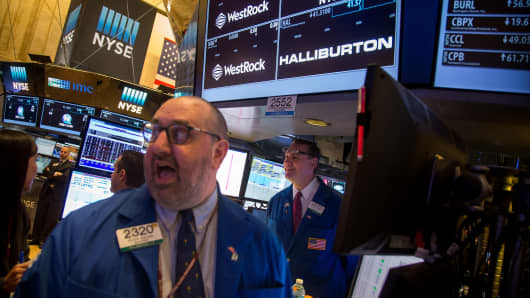When fear and loathing is at its greatest, then it's time to buy, or so the theory goes.
Negative sentiment has been abundant around emerging market (EM) assets over the last four months. Investors who flooded into riskier higher growth plays to chase higher returns in a low volatility, low interest rate world, fled the market darling in the face of a stronger dollar, hikes from the U.S. Federal Reserve and trade tensions.
But is the worst almost over? The fund outflows from the Institute of International Finance (IIF) last week offered a glimmer of hope, and contrarians think we've hit maximum selling.
Julian Howard, head of multi-asset solutions at GAM, forecast a massive opportunity in emerging markets during a recent appearance on CNBC.
"We may be at the peak of the anti-EM trade, we've had a very strong dollar, rising interest rates, but that's almost getting priced," he said. "The strong dollar is reflecting that the U.S. economy is doing well, we know the U.S. economy is not going to beat 4.1 percent in 2019. It's almost as though we can see the top of the hill, and that should bring relief to emerging markets."
Howard also reminded investors of the rationale for buying emerging markets — future growth is going to come from China and Asia.
"You don't even need to get that cute about it, emerging markets as a whole is trading at a 30 percent discount to the MSCI World index. So it's a matter of being in it to capture the upside and if we are peak dollar, and there are strong arguments for that, then emerging markets should start to pay off," he said.
Emerging market specialists are also sympathetic to the idea that the EM storm is abating.
Louis Costa, head of CEEMEA FX and rates strategy at Citi, told CNBC that emerging market funds have built up cash balances, but that perhaps most of the outflows have now happened.
He also pointed out that much of the selling was in liquid instruments such as exchange-traded funds (ETFs) and that he would be more concerned if the selling had been at an institutional level.
But Costa cautioned investors to remain selective. "The policy of buy everything that walks has gone", he said.
Others are nursing EM wounds and warn a return is premature.
"We have been long and wrong in emerging markets this year, although we are not changing our allocation," said Richard Champion, deputy chief investment officer at Canaccord Genuity Wealth Management. "Let's get the midterms out of the way to see if the trade talk is just politicking."
Study the EM tide closely if you've looking to catch the wave.
Karen Tso is an anchor on "Squawk Box Europe," CNBC and you can follow her on Twitter @cnbckaren .







